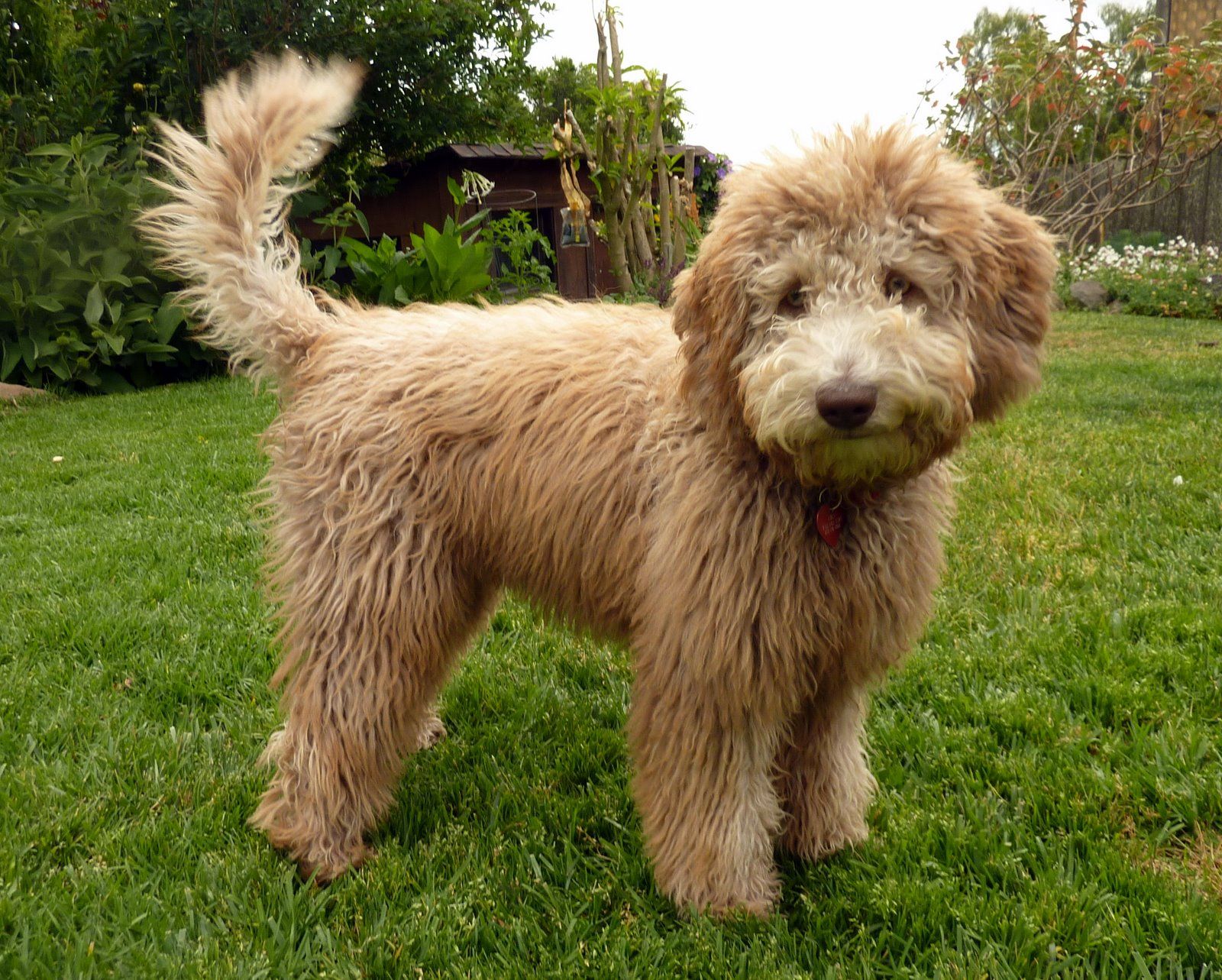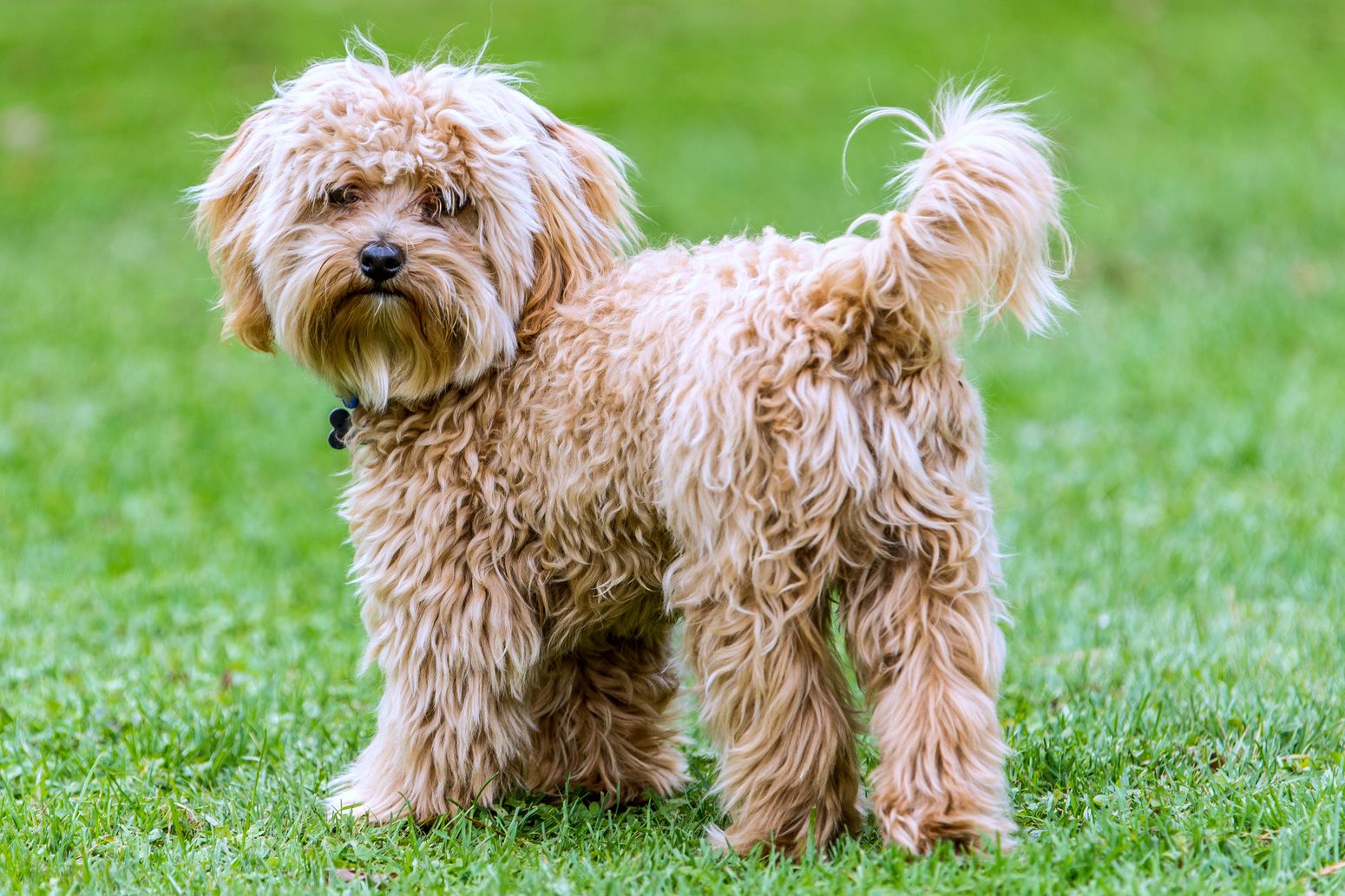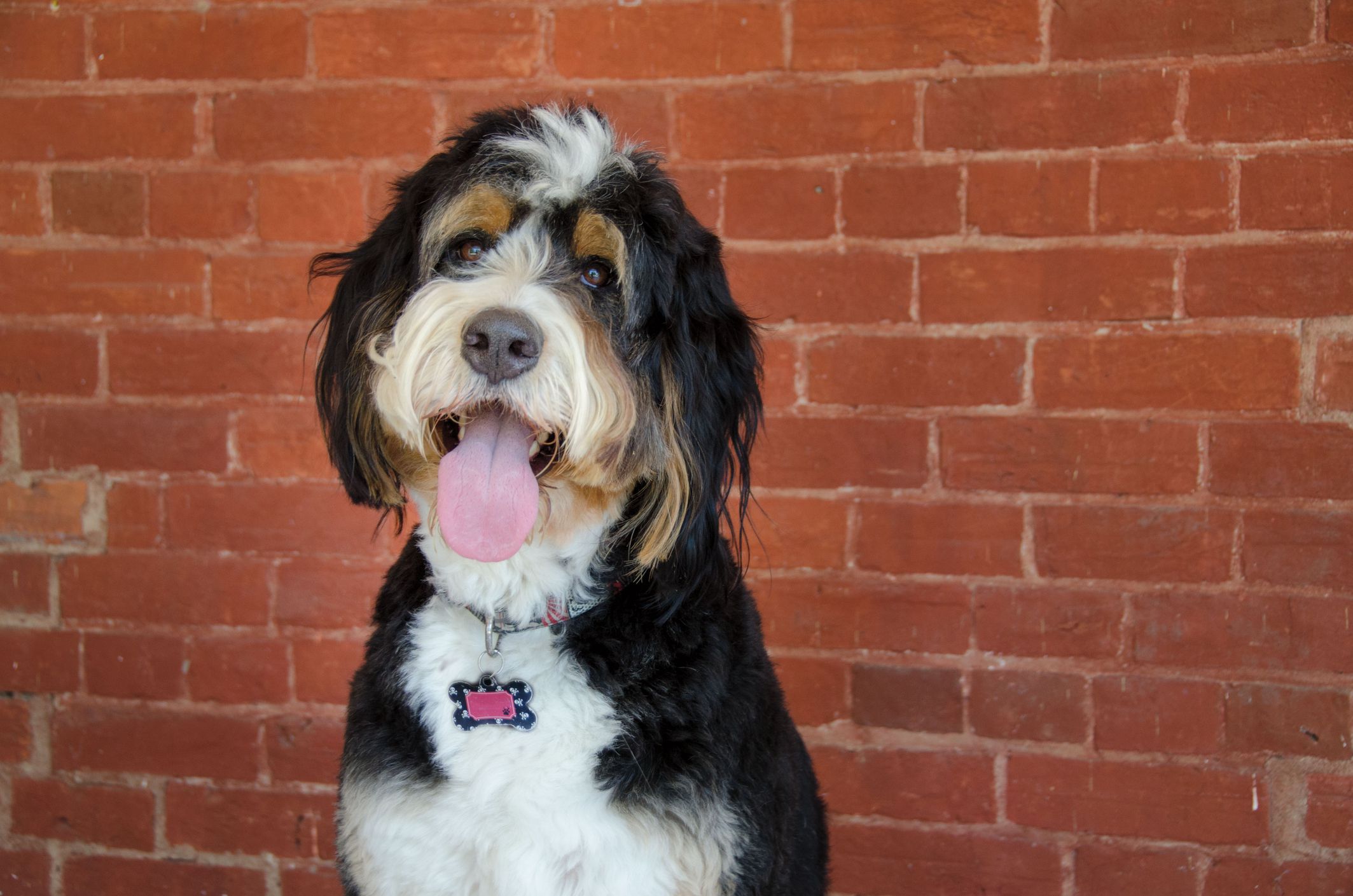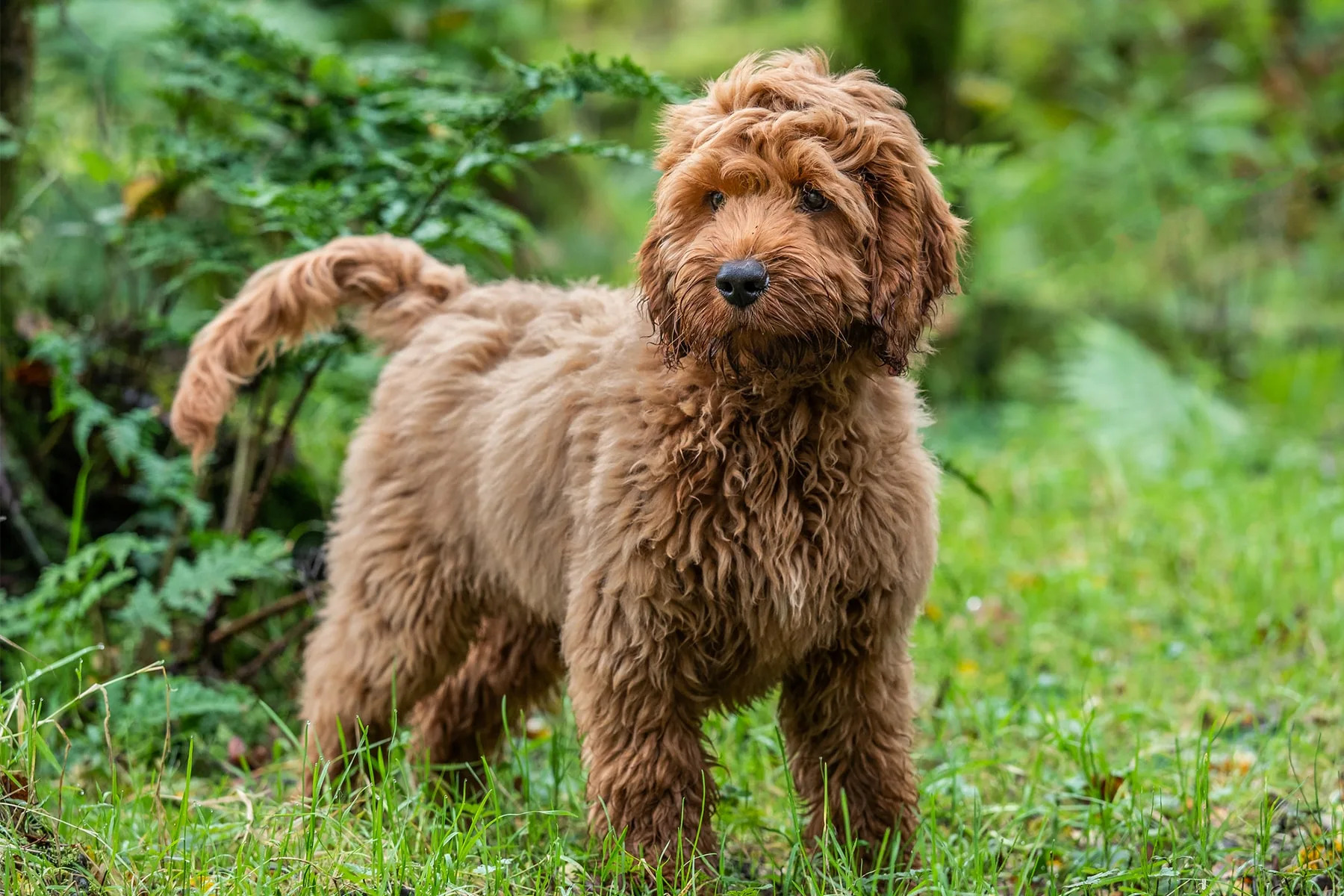On this page
Poodle Mixes: Everything You Need to Know
Poodle mixes, often referred to as “Doodles,” were intentionally bred to combine the Poodle’s best qualities—intelligence, hypoallergenic coats, and trainability—with the desirable traits of other dog breeds. The first recorded Poodle mix, the Labradoodle, was created in 1989 by Wally Conron, a breeder for the Royal Guide Dogs Association of Australia. His goal was to develop a low-shedding guide dog suitable for individuals with allergies.
The success of the Labradoodle inspired breeders to create other designer mixes tailored to specific needs:
Bernedoodles were bred for their calm, gentle temperament, making them excellent family companions.
Goldendoodles combined the affectionate and playful nature of Golden Retrievers with Poodles’ low-shedding coats.
Cavapoos were designed to be small, friendly, and adaptable companions, ideal for families, apartment dwellers, and seniors.
With 70% of hybrid dog owners choosing Poodle mixes, their appeal lies in their versatility, hypoallergenic qualities, and suitability for a wide range of households. Whether you need an energetic companion for outdoor activities or a small, affectionate pet for a quieter lifestyle, Poodle mixes offer a perfect balance of intelligence, adaptability, and charm.
What Are Poodle Mixes and Why Are They Popular?
Poodle mixes—also called "Doodles"—are hybrids of Poodles and other dog breeds. Their popularity has grown rapidly in recent years because they inherit the Poodle’s exceptional intelligence and hypoallergenic coat.
Why Do Pet Owners Love Poodle Mixes?
Low Shedding: Many Poodle mixes inherit a curly, low-shedding coat, which makes them ideal for allergy sufferers.
Highly Intelligent: Poodles are ranked as the second smartest breed, and their mixes often inherit this quick learning ability.
Variety of Sizes and Temperaments: With Poodles available in Standard, Miniature, and Toy sizes, their mixes can range from small lap dogs to large outdoor companions.
Compared to purebred dogs, Poodle mixes are often healthier due to hybrid vigor, which reduces the chances of certain genetic disorders. Their adaptability makes them a great choice for families, individuals, and seniors alike.
Recommendation from Dr. Laura Jenkins, DVM: “Poodle mixes combine the best of both parent breeds, but owners must understand the care requirements of the specific mix to ensure a healthy life.”
What Are the Most Popular Types of Poodle Mixes?
Poodle mixes come in many varieties, with some combinations being especially popular for families, allergy sufferers, and active individuals. Each mix inherits unique qualities from its parent breeds, offering options for all types of owners.
Top Poodle Mixes and Their Traits:
Labradoodle (Labrador + Poodle):


Energetic, friendly, and ideal for active families.
Can weigh 50–70 pounds and require regular exercise.
Goldendoodle (Golden Retriever + Poodle):

Affectionate, playful, and easygoing, perfect for families with kids.
Known for their gentle and sociable temperament.
Cavapoo (Cavalier King Charles Spaniel + Poodle):

Small, loving, and ideal for apartment living.
Weighs between 10–20 pounds, making them manageable for seniors.
Bernedoodle (Bernese Mountain Dog + Poodle):

Large, calm, and loyal, with a striking tricolor coat.
Weighs between 70–90 pounds and thrives in spacious homes.
Cockapoo (Cocker Spaniel + Poodle):

Playful, affectionate, and highly trainable.
A medium-sized dog weighing 15–30 pounds.
Each mix offers a unique size, coat type, and energy level, making it easy to find one that matches your lifestyle. Whether you prefer a small companion or an outdoor adventurer, there’s a Poodle mix for everyone.
Recommendation from Dr. Mark Edwards, DVM: “Choose a Poodle mix based on your space, lifestyle, and time availability for exercise and grooming.”
For more tips visit our page Dosty.co.
How Much Grooming Do Poodle Mixes Require?
Grooming is essential for Poodle mixes because they often inherit the Poodle’s curly and dense coat. If neglected, their fur can mat, causing discomfort and skin problems.
Key Grooming Steps for Poodle Mixes:
Regular Brushing: Brush their coat 2–3 times per week to prevent tangling and matting. Curly coats trap dirt and debris, so consistent care is essential.
Professional Trims: Schedule grooming appointments every 6–8 weeks to keep their coat manageable and healthy.
Bathing: Bathe your Poodle mix monthly with a gentle, hypoallergenic shampoo to maintain coat softness.
Ear Care: Poodle mixes with floppy ears are prone to ear infections. Clean their ears weekly to prevent moisture buildup.
Nail Trimming: Trim their nails every 4–6 weeks to avoid overgrowth and discomfort.
Poodle mixes require more grooming than short-haired breeds, but with consistent care, their coat will remain beautiful and healthy.
Recommendation from Dr. Rachel Bennett, DVM: “Owners of Poodle mixes must
What Health Problems Should You Watch for in Poodle Mixes?
While Poodle mixes are generally healthy, they can still inherit genetic conditions from their parent breeds. Knowing these risks helps owners take preventive measures and provide better care.
Common Health Concerns in Poodle Mixes:
Hip Dysplasia: A condition common in larger Poodle mixes like Labradoodles and Bernedoodles, causing joint pain and reduced mobility.
Progressive Retinal Atrophy (PRA): A genetic eye condition leading to gradual vision loss. Early screening can help manage it.
Ear Infections: Floppy or hairy ears trap moisture, increasing the risk of bacterial infections.
Bloat (Gastric Torsion): Larger Poodle mixes are prone to this life-threatening condition. Monitor their eating habits closely.
Allergies: Poodle mixes may develop food or environmental allergies, causing itching and digestive issues.
Routine veterinary care, a proper diet, and early genetic screenings can minimize these risks.
Recommendation from Dr. Anthony Clarke, DVM: “Poodle mixes benefit from preventative care, such as annual health screenings and balanced nutrition, to live long and healthy lives.”
How Do You Choose the Right Poodle Mix for Your Family?
Choosing the right Poodle mix requires understanding your lifestyle, living space, and preferences. Since Poodle mixes vary widely in size, temperament, and energy level, selecting one that fits your needs is crucial.
Factors to Consider:
Size: Small mixes like Cavapoos are ideal for apartments, while larger mixes like Bernedoodles need spacious homes.
Activity Level: Energetic breeds like Goldendoodles require daily exercise, while Cockapoos are content with moderate activity.
Allergies: If allergies are a concern, look for tighter-coated mixes like Labradoodles or Cavapoos.
Temperament: Some mixes are calm and laid-back, while others are playful and social. Match their personality to your lifestyle.
By assessing these factors, you can find a Poodle mix that brings happiness to your home.
Recommendation from Dr. Sarah Collins, DVM: “Carefully research both parent breeds to ensure the Poodle mix you choose aligns with your expectations and needs.”

Conclusion: Why Poodle Mixes Make Great Companions
Poodle mixes are versatile, intelligent, and loving companions suitable for a wide variety of households. Their hypoallergenic potential, adaptable nature, and trainable personalities make them ideal for families, singles, and seniors alike. By understanding their grooming needs, health concerns, and traits, you can provide the care they need to thrive.
Learn everything you need to care for your Poodle mix with Dosty App expert guides.

